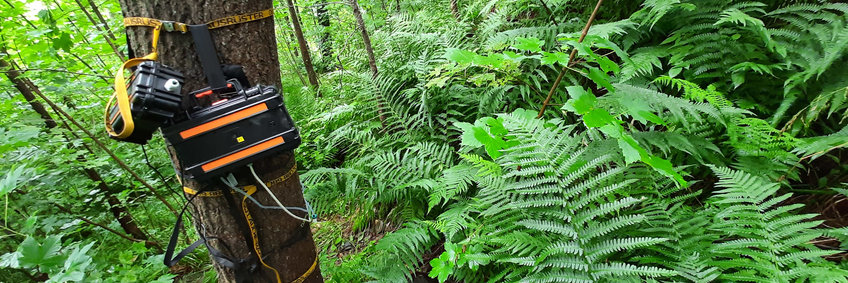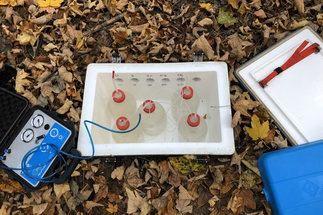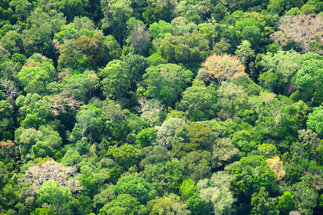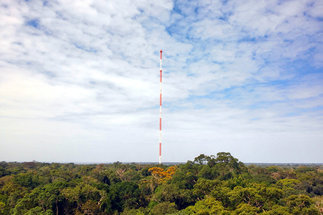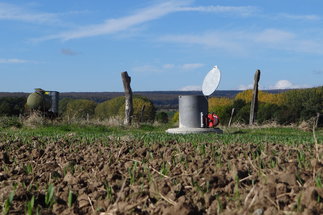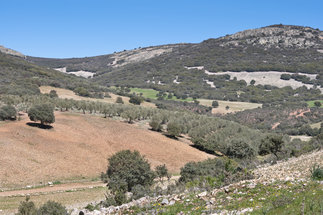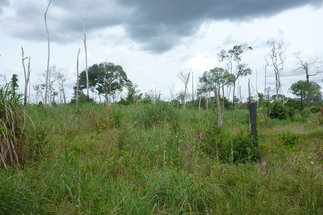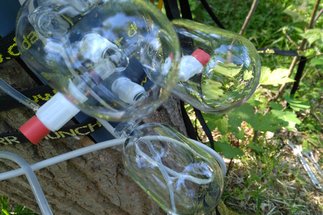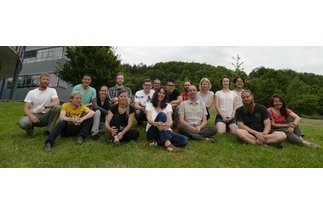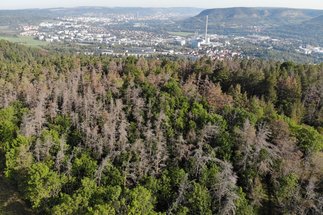Research Themes
The members of the Department of Biogeochemical Processes conduct research in groups and projects on various research topics. We focus on different spatial scales, from individual organisms (microbes or plants), to ecosystems, to entire landscapes. All research themes have in common that they are dedicated to the study of the carbon cycle and the question of how long carbon remains in the individual components of ecosystems.
The research group investigates key processes in global biogeochemical cycles at the molecular level. Biomarkers and their isotopic content provide information on the regulation of individual processes. The group develops new tools and applies existing techniques to study individual key processes.
[more]
We study interactions between the environment and multiple biogeochemical cycles. Our group works on synthesis of models and observations, and produces computational tools in open source software environments.
[more]
German-Brazilian collaborative project to study the role of Amazon rainforests in the changing Earth system.
[more]
The Collaborative Research Centre 1076 AquaDiva (CRC AquaDiva) focuses on the important roles of water
(Aqua) and biodiversity
(Diva) for shaping the structure, properties, and functions of Earth's Critical Zone that extends from the vegetation through the soil and down into the first aquifers.
[more]
This collaborative project aims to improve our understanding of the processes that govern dryland vegetation dynamics and their interactions with soil, providing a mechanistic basis for assessing and modeling their ecosystem services in a changing world.
[more]
At the Tanguro ranch site in the Southern Amazon, we study whether and how compounding disturbances may drive severe and persistent transformation of forests into highly degraded savanna‐like vegetation.
[more]
Boaz Hilman studies how carbon flows through trees and soils, and is in particular interested in linking processes to gas exchange measurements, especially in respiration. Another area of research within this theme is how aboveground tissues and fine roots use storage compounds.
[more]
The Soil Biogeochemistry Group aims at understanding and quantifying the role of belowground processes for biogeochemical cycles at different spatial scales. Our main focus is explaining the persistence of organic matter in soils (SOM) and assessing its vulnerability to global environmental changes, land use intensification, and associated loss of biodiversity.
[more]
Former Research Themes
The team of Henrik Hartmann mainly studies carbon fluxes within the plant and how such fluxes change under stress, such as drought or heat. Another focus of our their work is on cross-scale studies of tree and forest responses to climatic changes.
[more]
